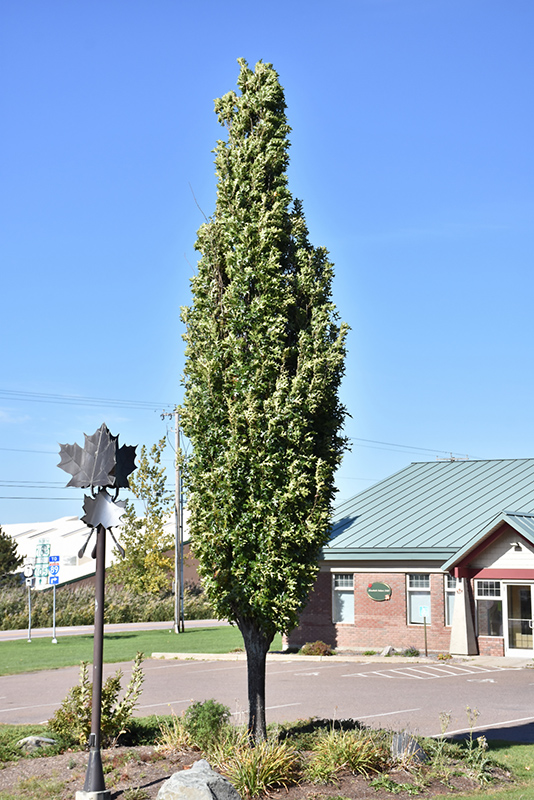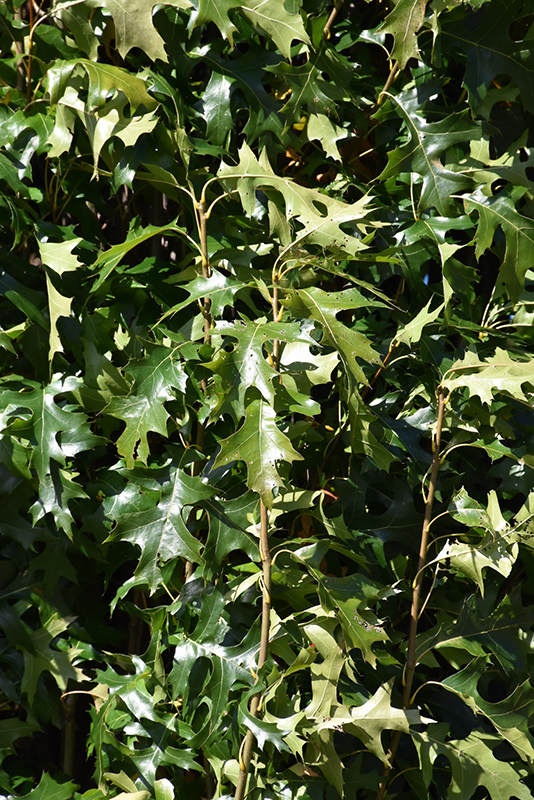Green Pillar Pin Oak
Quercus palustris 'Pringreen'
Height: 50 feet
Spread: 15 feet
Sunlight:
![]()
Hardiness Zone: 4a
Other Names: Swamp Oak;Emerald Pillar
Description:
Nothing short of revolutionary, this tightly columnar tree is changing landscapes with its fastigiate form and maroon-red fall color; use in groups as a formal screen or allee or as a solitary to punctuate the skyline of your landscape
Ornamental Features
Green Pillar Pin Oak is primarily valued in the landscape for its rigidly columnar form. It has dark green deciduous foliage. The spiny lobed leaves turn an outstanding red in the fall. However, the fruit can be messy in the landscape and may require occasional clean-up.
Landscape Attributes
Green Pillar Pin Oak is a deciduous tree with a narrowly upright and columnar growth habit. Its average texture blends into the landscape, but can be balanced by one or two finer or coarser trees or shrubs for an effective composition.
This tree will require occasional maintenance and upkeep, and should not require much pruning, except when necessary, such as to remove dieback. It is a good choice for attracting squirrels to your yard. Gardeners should be aware of the following characteristic(s) that may warrant special consideration;
- Messy
Green Pillar Pin Oak is recommended for the following landscape applications;
- Vertical Accent
- Hedges/Screening
Planting & Growing
Green Pillar Pin Oak will grow to be about 50 feet tall at maturity, with a spread of 15 feet. It has a low canopy with a typical clearance of 3 feet from the ground, and should not be planted underneath power lines. It grows at a fast rate, and under ideal conditions can be expected to live to a ripe old age of 300 years or more; think of this as a heritage tree for future generations!
This tree should only be grown in full sunlight. It is quite adaptable, prefering to grow in average to wet conditions, and will even tolerate some standing water. It is not particular as to soil type, but has a definite preference for acidic soils, and is subject to chlorosis (yellowing) of the foliage in alkaline soils. It is highly tolerant of urban pollution and will even thrive in inner city environments. This is a selection of a native North American species.

